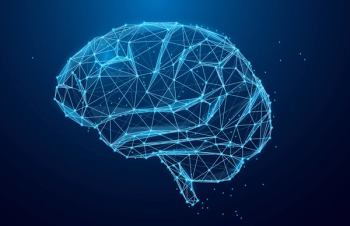
Ketamine Safe for the Treatment of Patients With Eating Disorders: In Conversation With Elizabeth Wassenaar, MD, MS, DFAPA, CEDS-C
Key Takeaways
- Ketamine can be safely used in patients with active eating disorders, even with severe malnutrition, in a controlled environment.
- The study provides a new treatment option for psychiatrists and mental health clinicians working with eating disorder patients.
New research reveals ketamine's safe use for treating eating disorders, offering hope for patients with comorbid treatment-resistant depression.
CLINICAL CONVERSATIONS
Ketamine has made waves with its potential for treating major depressive disorder and mood disorders, but rarely do you hear of it being used to treat patients with eating disorders. New research from Denver’s Eating Recovery Center and Pathlight Mood & Anxiety Center highlights this important, underrecognized potential use of ketamine. With their new study, Elizabeth Wassenaar, MD, MS, DFAPA, CEDS-C, and her team have become the first in the world to demonstrate that ketamine can be administered safely in higher levels of care, even when patients are actively struggling with an eating disorder or malnutrition.1
Psychiatric Times sat down with Wassenaar to better understand how ketamine can be used for patients with eating disorders, and how she and her team unlocked the potential of this treatment.
Psychiatric Times:Why this news is important for psychiatrists and mental health clinicians to see?
Elizabeth Wassenaar, MD, MS, DFAPA, CEDS-C: This is the first study of its kind to evaluate if ketamine can be used safely in a patient population with active eating disorders. Many psychiatrists and mental health clinicians may be fearful to treat individuals with eating disorders precisely because they do not know if it is safe for them to receive ketamine as a medication for their treatment-resistant depression. Psychiatrists and mental health professionals are familiar and may even be comfortable with prescribing ketamine for treatment-resistant depression but may have been hesitant to prescribe for individuals with eating disorders, with good reason.
Individuals with eating disorders often have medical complexities related to malnutrition that can increase their risk of respiratory depression with ketamine. Fortunately, we have been able to show that individuals with eating disorders, even those active in their disease and in varying degrees of malnutrition, with a body mass index down to 10, were able to receive subanesthetic generic intranasal ketamine without any medical incident or concerning change in vital signs. It is important for psychiatrists and mental health professionals to note that the patient population we studied were in a highly controlled and contained environment with significant support for both their psychological distress and their nutritional needs, and to use this information when planning for the care of their own patients.
PT: How can psychiatrists and mental health clinicians apply this in their own practice?
Wassenaar: Psychiatrists and mental health clinicians can apply this information as they work with individuals with eating disorders to consider if ketamine is an appropriate treatment option and to consider what kind of support their patients may need to assure safety from novel interventions.
PT: What does this new study reveal about using ketamine?
Wassenaar: This new study tells us that generic subanesthetic doses of intranasal ketamine can be used safely and a wide variety of patients with activating disorders at varying degrees of malnutrition when they are in a medically supervised environment.
PT: Why have patients with eating disorders been excluded from psychedelic research and treatment until now?
Wassenaar: Individuals with eating disorders are a difficult group of individuals to study precisely because of the medical instability that can be a consequence of the use of disordered eating behaviors. This can complicate and confound research questions and increase the demand for the psychological and medical needs of this population. In psychedelic research specifically, individuals are often required to be safe and stable at an outpatient level of care and weight restored, which for many individuals with eating disorders is a very high bar and may exclude them from important ongoing research on novel interventions for mental illness.
PT: Thank you!
Dr Wassenaar is the regional medical director for the Mountain and West regions at Eating Recovery Center and Pathlight Mood & Anxiety Center.
Reference
1. Wassenaar E, Blalock DV, Duffy A, et al.
Newsletter
Receive trusted psychiatric news, expert analysis, and clinical insights — subscribe today to support your practice and your patients.







